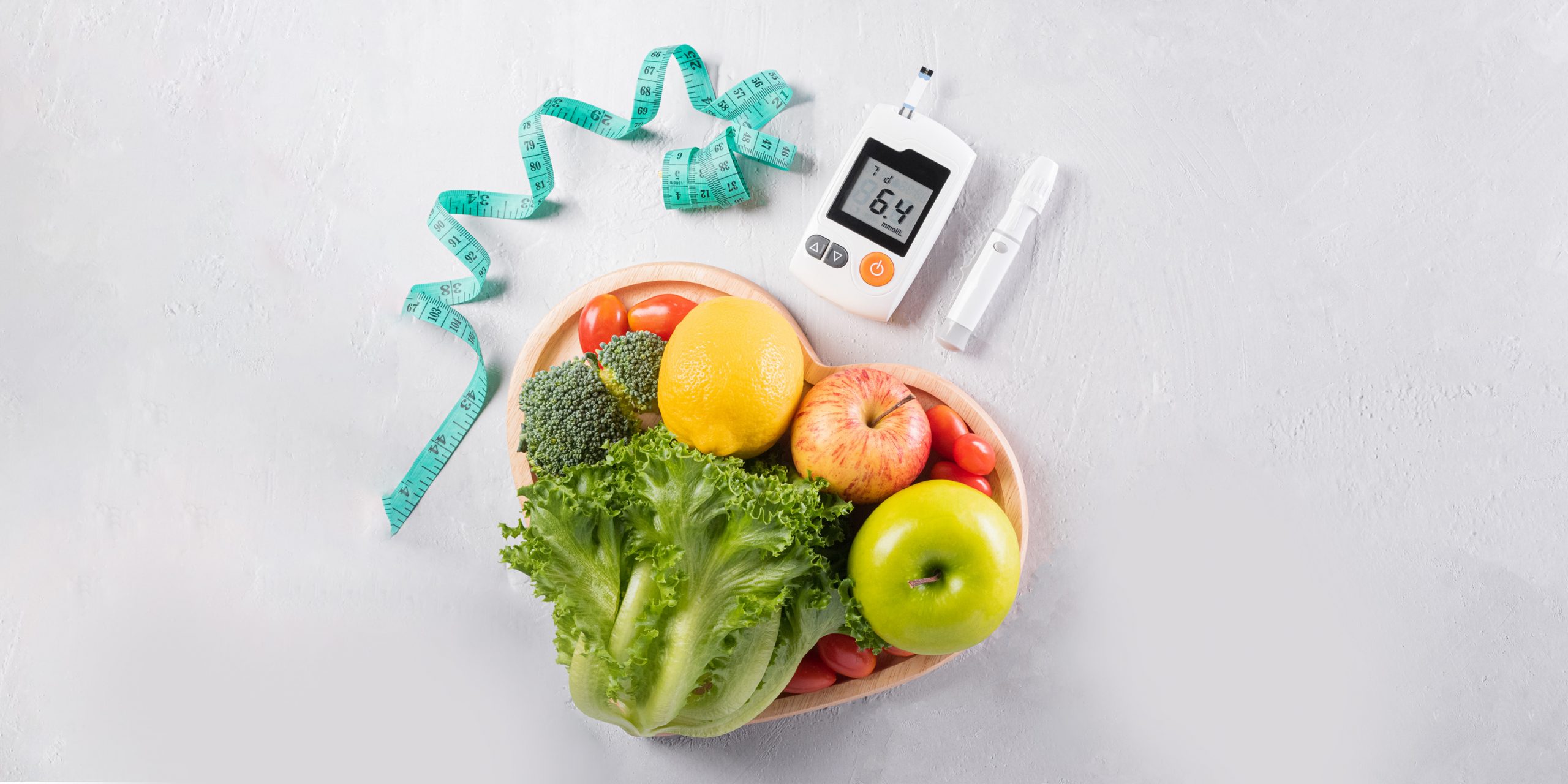8 Healthy Vegetables for Diabetes

Vegetables for Diabetes
When it comes to your diabetes diet, eating a well-balanced meal and including fresh seasonal foods in your everyday meal plan can be a good idea.
If you are wondering whether it is possible to have vegetables for diabetes, and which vegetables you can safely include in your diabetes diet, this article can give you some insight into the same.
Are Vegetables Good for Diabetes?
Eating vegetables for diabetes can be a crucial part of your overall diabetes diet and overall health. Vegetables are very rich in the nutrients they contain, such as fiber, antioxidants, vitamins, potassium, iron, calcium, and more.
All these are very good for your diabetes health as well as for your overall health.
Don’t struggle alone & get the expert care you deserve

Which Vegetables Are Good for Diabetes?
Here is a look at some vegetables for diabetes that are low on the glycaemic index or GI score.
- Overall, vegetables that are lower on the glycaemic index chart or the GI scale will make the best vegetables for diabetes.
- When you choose the type of vegetables for diabetes that you want to eat, go for the ones that are seasonal and are easily available in their fresh form, and are not frozen or processed.
- The vegetables for diabetes that you choose should be rich in fiber.
- Often, it is a good idea to have a mix of colorful vegetables for diabetes as these will add more nutrients to your meal.
- Having a mix of colorful vegetables on your plate also means that you will get a mix of different nutrients such as antioxidants, vitamins, and minerals.
- Go for vegetables that have a higher nitrate content, as this will help to reduce your blood pressure levels and hence will be considered good vegetables for diabetes.
Low-GI vegetables
Take a look at these vegetables for diabetes that are low on the GI scale and hence are considered not just safe, but good for your diabetes health:
Cauliflower
- Cauliflower contains a very low amount of carbohydrates which makes it a great vegetable not only for diabetes but for overall weight loss and weight management too.
- Cauliflower is a powerhouse of various nutrients such as fiber, minerals, and vitamins.
- The fiber and water content in cauliflower will keep you feeling full for longer and will prevent you from having unnecessary and untimely hunger pangs.
- As this vegetable is low on the GI score, it means that it will not make your blood sugar levels rise and will help to keep it steady.
Include cauliflower in your paranthas, have it as a sabzi, make cauliflower and vegetable soup, use grated cauliflower to make cauliflower rice, or have it as a stuffing for sandwiches.
Beetroot
- Beetroots have a very high amount of nitrates which can especially help to reduce glucose levels after you have had a meal.
- Managing your weight and losing weight in case a person has diabetes and is overweight or obese is often key to better management of overall diabetes health.
- Eating beetroots could be a natural and safe way to better manage weight levels as well.
- As per some studies, consuming beetroot on a regular basis can also help to lower blood pressure levels as well as manage them better.
Add beetroots to your salads, use them to make soups, add them to your parantha stuffings and make vegetable beetroot tikkis using beetroot.
Spinach or palak
- Spinach has a very high content of various vitamins such as vitamin A, vitamin C, vitamin E as well as vitamin K.
- It also has a high amount of iron, potassium, thiamine, protein, folate, fiber, and calcium.
- Spinach has very low amounts of calories as well as very low amounts of carbohydrates. This means that when you have spinach, it will not adversely affect your blood sugar levels and instead will help to manage your blood sugar levels.
- Making spinach a regular part of your diet can also help to boost your digestive health and boost your overall metabolism.
You can add spinach to your dals, soups, smoothies, and shakes, have it as a stuffing in your paranthas, mix it with your regular roti dough, add it in chilas, make palak dosa, add it in your chicken or mutton curries or even add it to egg curries.
Carrots
- Carrots are non-starchy vegetables. This means they do not have a lot of carbohydrates and will not adversely impact your blood sugar levels.
- Carrots contain beta carotene as well as various antioxidants, a load of nutrients as well as fiber.
- The vitamin A in carrots helps to boost your overall digestive health and also helps to regulate insulin secretion in your body.
- It is also a rich source of vitamin B6,
- The fiber that is present in carrots also makes it a key part of the better management of blood sugar levels.
Add carrots to your salads, enjoy it with a homemade dip of dahi (curd) and other condiments, use it as a stuffing for your paranthas, add it in the roti dough, use it to make a sandwich and add it in your soups for a hearty meal.
Bhindi or lady finger
- Bhindi is very low in calorie content and as a result, will not cause sudden increases in your blood sugar levels.
- It is also very rich in its content of minerals, fiber, and vitamins.
- Bhindi contains myricetin which can help to improve the absorption of glucose by your cells.
Add bhindi in your curries to thicken them, use it regularly in your sabzi, and add it in khichdi. It is best not to fry bhindi while cooking it as this cooking method is not healthy.
French beans
- Beans have a lot of healthy nutrients that your body needs for its overall health, as well as to better manage your diabetes health.
- These are very low on the glycaemic index chart and as a result, will not have a direct impact on your blood sugar levels and will not cause a spike.
- Beans are very rich in their content of various vitamins such as vitamin A, vitamin C, vitamin K, folic acid, fiber, iron, and chlorophyll.
- All of these nutrients play a very positive role in blood sugar levels and will help your body to manage them better.
Have it regularly as a sabzi, use it in dals and khichdi, and add it to your fried rice.
Cucumber or kheera
- Eating cucumbers regularly can have a positive impact on better health and management of blood sugar levels.
- Cucumber contains very low amounts of carbohydrates but has a very high amount of fiber.
- This means that it is a great vegetable, especially for those who have diabetes.
- Eating cucumbers on an everyday basis can also help to keep your blood sugar levels within the guided healthy range when combined with healthy foods. It will also prevent the risk of hypoglycemia, in which the levels of blood sugar fall lower than the healthy recommended range.
- As cucumber has high water content and is rich in fiber, it will also help you feel full for longer, thus reducing any untimely eating cravings.
Add cucumber to your raita, use it with dips made with curd and condiments, add to your salad, and snack on it in between your meals.
Tomatoes
- Just like carrots, tomatoes are also an extremely beneficial vegetable for diabetes.
- Tomatoes are non-starchy vegetables. This means they do not have a lot of carbohydrates and will not adversely impact your blood sugar levels.
- They contain beta carotene as well as various antioxidants, a load of nutrients as well as fiber.
- The low amount of carbohydrates in tomatoes is good for your blood sugar levels and will help better manage the same.
Add tomatoes to your salads, curries, raita, soups, smoothies, dals, vegetables, and sandwiches.
Remember that there are many vegetables for diabetes that are considered safe to eat, but the key is always portion size.
Speak to your doctor or nutritionist and understand how much portion size and what cooking methods will work for you. Refrain deep frying veggies, especially bhindi and cauliflower.
In addition to having these vegetables for diabetes, also make sure that you have a regular exercise routine and a healthy lifestyle overall for better health and for the better management of diabetes.
This blog provides general information for educational and informational purposes only and shouldn't be seen as professional advice.
Don’t struggle alone & get the expert care you deserve





















